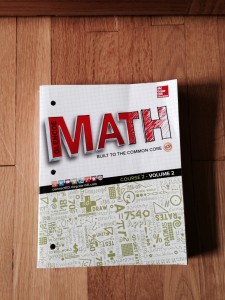Politicians are the same all over. They promise to build a bridge even
where there is no river. ~ Nikita Khrushchev
Because the U.S. government mandated steadily improving results on annual state standardized tests under NCLB, we have been trying to prepare students for that one test for years. This test-based focus has become institutionalized, and the repeal of NCLB will not make that focus vanish. We remain fixed on test-score results, even as we decry the time students lose today to testing.
Urban, academically- and financially-disadvantaged schools have been attempting to use the same curriculum as higher-scoring districts, in some areas even rewriting their curricula to make expectations more demanding in response to the U.S. move toward a Common Core curriculum intended for use in schools across the nation. We are “raising the bar,” as it has come to be called, in our struggling school districts, despite the fact that many American students have not been coming close to jumping over easier bars from the past, and despite the fact that we have zero evidence implicating our current or former state standards as any part of the source of America’s academic failures.
What is happening here? Essentially, we are threatening people from the top down. “Get those test scores up! Do it or else!”
“Do it or else!” has been used effectively in private industry for years and, in the right circumstances, this management-by-threat system can work. In effect, though, what happens nowadays in education is often ineffective and even silly. In desperate efforts to push up score numbers, administrators buy 7th grade language arts or math textbooks specifically written to their state test or to the new Common Core standards – without regard for how well their students can read the books. They know the bulk of their students are reading at a 5th, 4th or even 3rd grade level, but they can’t buy a lower-grade level book. That book doesn’t have “the right material.” It’s not geared to the 7th grade test. So they hand the kids a book that many can’t read, instead.
Eduhonesty: Here’s the crazy part of chasing that annual test’s tail — we have no reason to believe that making standards tougher will improve test scores, much less student learning. Common sense would suggest the opposite will more likely occur. As bars go up, students will miss the target by a greater margin.
The idea seems to be that if we raise the bar, students will leap higher. Why? What is the rationale underlying this belief? As the bar gets higher and higher, human nature suggests that at least some students will simply toss up their hands. Harder material will only discourage many students who have already fallen behind.
I am struck by an irony. That possibly nonexistent “crisis” of standards that resulted in the Common Core may create the very crisis that the Core was allegedly supposed to fix. A sudden shift in standards leaves many students behind, a fact documented by this year’s PARCC scores, scores that proved a true epic fail across all the states that ventured to try the new test. Many more students failed the PARCC test than had failed their state tests the year before.
Harder tests create higher fail rates. No evidence suggests that these tests necessarily boost learning. The mere fact of a harder test does nothing without remedial education and increased student support.

